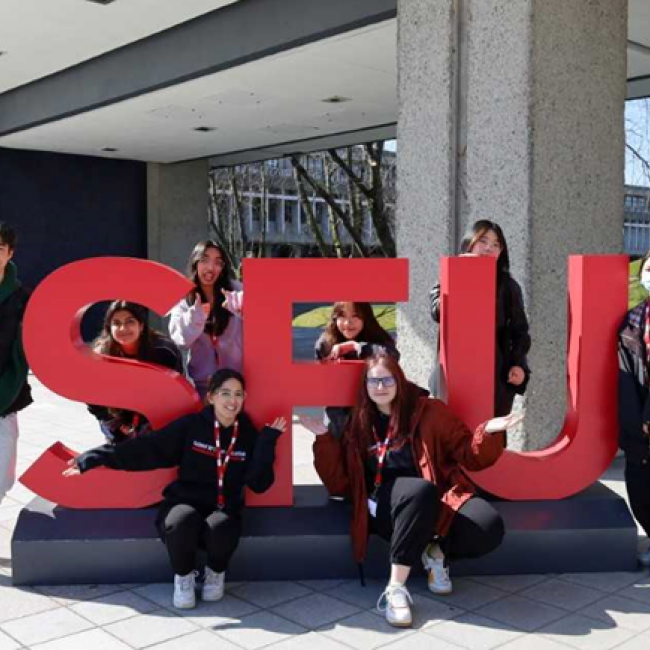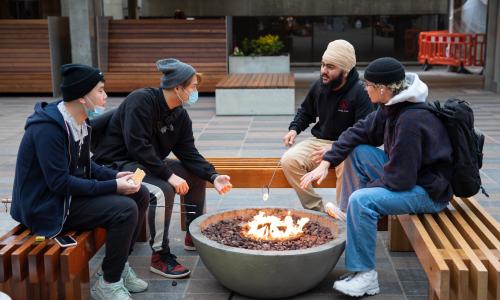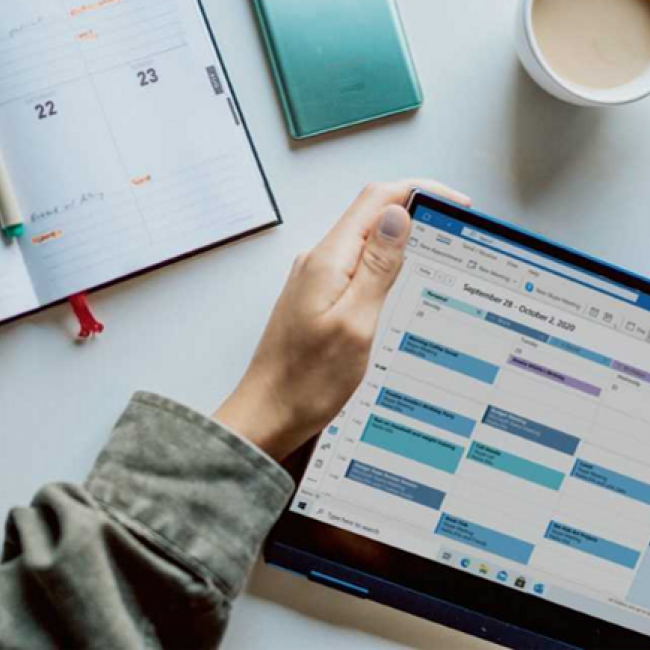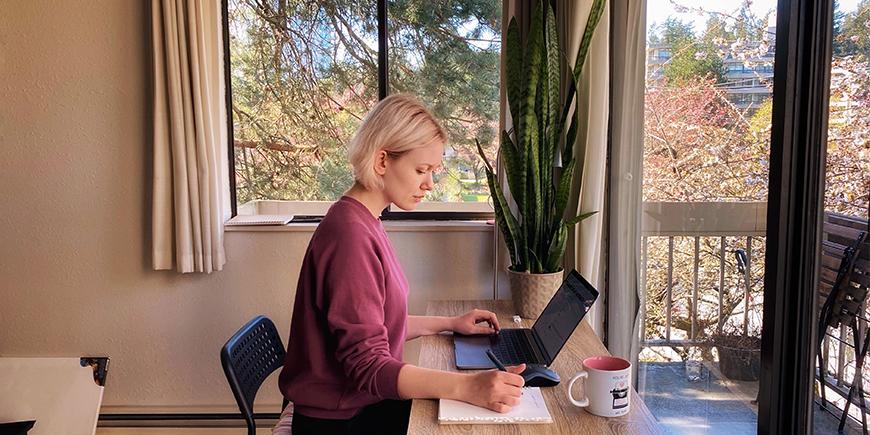
Hi, my name is Maria and I’m currently doing a Co-op as a Special Projects Assistant with SFU Communication Co-op. I bet none of us expected it was coming: all of a sudden there were no morning commutes, no more walks to Renaissance Coffee with my co-workers, and no office desk where I could start my day. Working from home happens to be our new reality now. I faced many unexpected challenges while setting into this new routine. Figuring out new ways for effective communication with my coworkers while staying sane is now on my agenda. My team and I figured that I’m not the only student struggling while undergoing the shift. So here I am, sharing some sources that helped me make my hectic reality a bit more manageable and enjoyable.

Staying Motivated
Maintaining motivation while being locked up in our homes might be extremely challenging. You may find that it’s hard to concentrate or get tasks done while working in an environment where you usually rest. As a result, it causes frustration, anger or apathy. The chances to get stuck on YouTube, Netflix or household chores significantly increase. Motivation is key to a productive work process, and now we all have to search for new sources to fuel it.
My Top Tip: Figure out why you do what you do (e.g. make a list of reasons). Look for inspiration in the unexpected things which you’ve been surrounded by this whole time.
Here are some articles that might help you with that:
Also, these are some productivity apps which I personally use to keep myself away from distractions:
-
Clockify: a time-tracking software that will help you with time-management and allow you to see how much time you spend on each task
-
Tomatotimer: a timer that keeps you efficient by breaking down work into intervals, separated by short breaks
-
Todoist: a to-do list app that will help you determine what needs to be done and keeps track of your progress
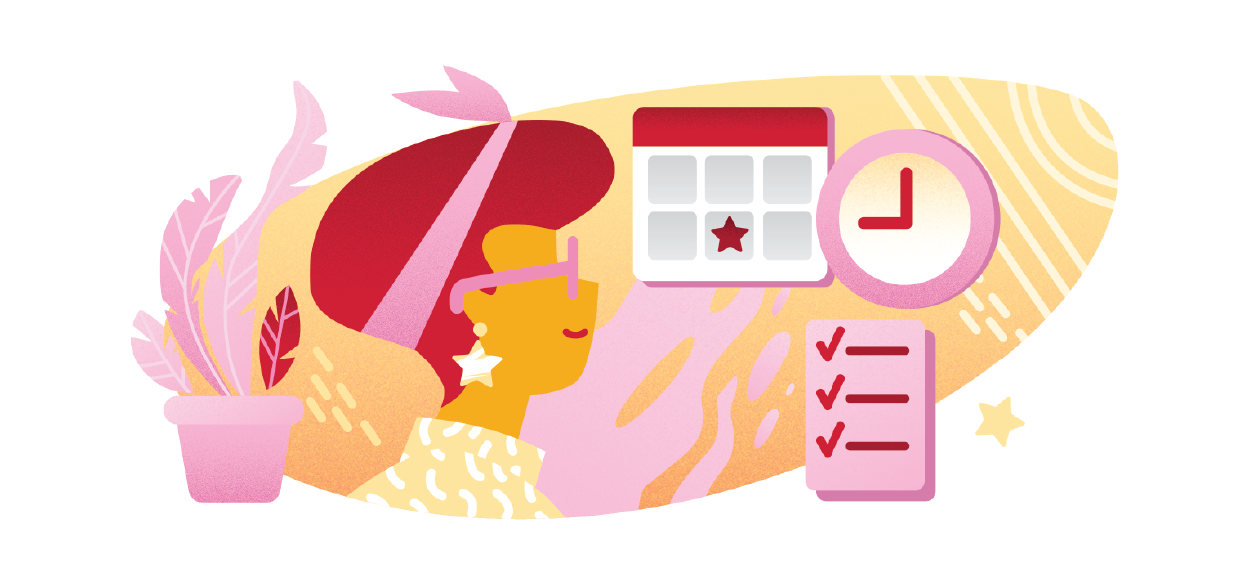
Setting Your Routine
Let’s try to accept that at this point, we may be like this for the next little while. When working from home, setting the right routine may not only boost your productivity but it can also make your life feel a bit more normal even while you are inside 24/7. Start with keeping it repetitive. Wake up at the same time every morning, shower, have breakfast, dress up. It’s been proven that whenever you perform a behaviour repeatedly, you will eventually be able to remember what you are supposed to do rather than having to think about it. As said by Jogging Baboon from BoJack Horseman: “It gets easier…Every day it gets a little easier…But you gotta do it every day — that’s the hard part. But it does get easier.”
My Top Tip: Don’t get to work right away after waking up. Create a small ritual (e.g. meditation, going for a walk, making yourself a cup of coffee). Remember to keep doing it every day. (If sticking to it is a challenge, try some of the productivity apps above.)
Looking for more ideas to plan out your daily routine? Take a look here:
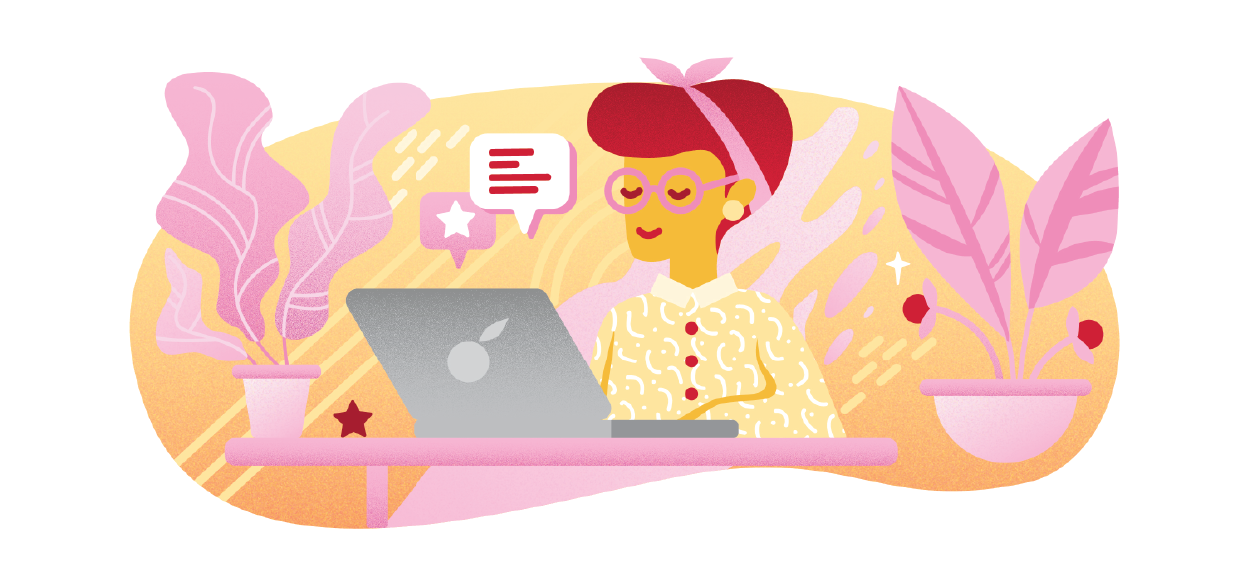
Establishing Your Workspace and Boundaries
It’s tough to switch to work mode when you are trying to do the job from your bed where you usually rest. Creating a designated workspace will trick your brain into thinking you are not at home (in the ordinary sense of the word), so it’ll get easier to concentrate on work. Believe me, I had no clue how effective this trick was until I tried it myself. Ordering a desk online was the best decision I’ve made during the quarantine so far.
Buying a new desk isn’t an option for everyone, so here are some ideas for making your workspace productivity-boosting:
Another important aspect of establishing a proper workspace is setting boundaries. We university students often share living spaces with our families or roommates, who might be a source of distraction as well. Setting healthy boundaries is crucial for an effective work process, so you might want to have a talk with your roommates about your (and their) needs. Try to communicate your concerns as clearly and openly as possible.
My Top Tip: Make a note with all times you need to be especially focused and require extra silence. Ask your roommates to do the same thing so that you all know when you have to be especially mindful of each other’s personal space.
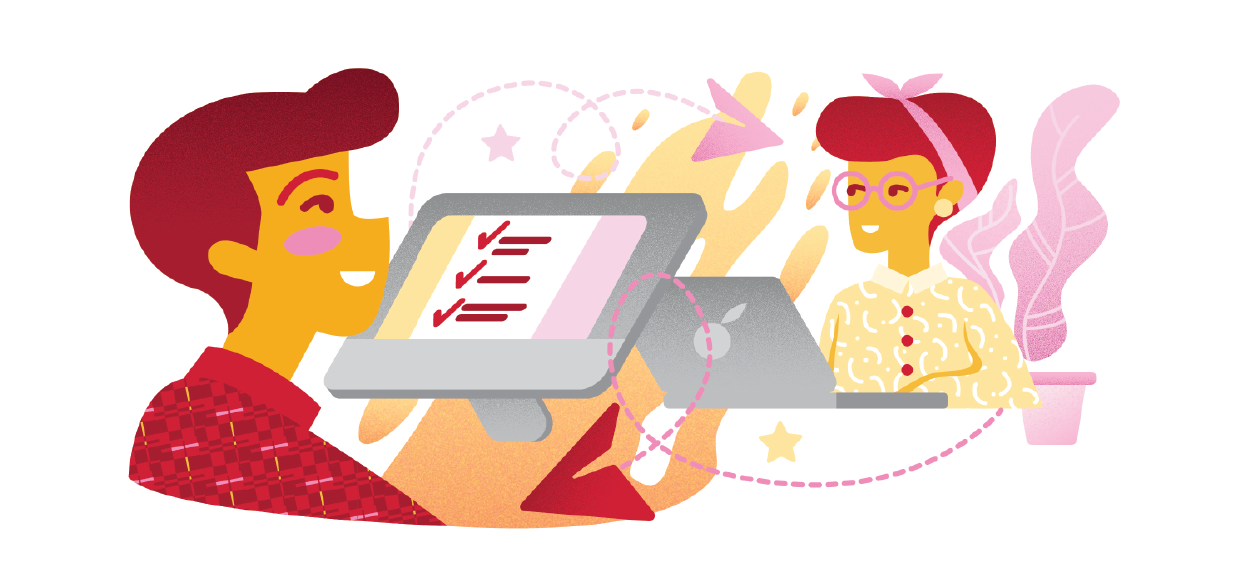
Communicating Effectively
Now, when we are not able to communicate with co-workers in person, the majority of our communication is happening via email and messaging. It might be quite overwhelming when your inbox or Slack chats are flooded with unread urgent messages. While adjusting to mostly written communication, remember that most inquiries can wait for a couple of hours, so take a deep breath, pace yourself and prioritize your tasks. You can also take it as an opportunity to practice your email writing skills. It’s cognitively impossible to write anything without concentrating on the subject. Remember you can always connect with your supervisor and ask if they are available via phone or video chat (eg. Skype, Zoom, etc) for quick inquiries. Staying regularly connected to the team may help you feel less isolated and will prevent you from additional stress.
My Top Tip: Don’t be afraid to take the initiative to stay connected with team members by arranging face-to-face check-ins via Zoom or any other video-conference software.

Prioritizing Your Well-Being
This is the last but probably the most important part of this message. I quickly realized that I can’t be productive at work without taking care of myself first. Don’t forget to switch off and devote some time to yourself. Take daily walks and try guided meditation (I use the Headspace app). Finding inner peace is crucial for being productive at work.
My Top Tip: Start practicing one new thing that you always wanted to do/learn(baking, working out, coding, etc.) but never had time for. This will allow you to switch off from the work mode more easily. You can also do it with your friends via video-chat to make it even more fun!
Being in self-isolation doesn’t mean you have to be alone! Staying in touch with your friends can benefit your mental health and be an additional source to boost your energy. Here are some ideas to have fun with your friends online that I came up with for myself that you could check out:
-
Watch Netflix together: How to watch Netflix together online without being in the same room
-
Pick one of those online courses and learn a new skill with your friends
-
Throw a virtual dinner party: How to Host a Virtual Dinner Party - Virtual Dinner Party Tips
All in all, we are human beings who tend to adapt to the environment we are living in. Though the shift we are undergoing can be quite stressful, there are some good things too. For instance, I’m happy to have these two extra hours a day I don’t spend on the commute, so I can spend it on something I love. Remember, you are not alone - many co-op students are in the same boat right now. Your supervisors and Co-op Coordinators are here to support you.
Finding Support
If you are feeling anxious during these unique and hectic times, here are some helpful resources where you can find additional support.
-
An online course by the University of Toronto on managing mental health during COVID-19
-
WeGotChu is a resource for young people in Canada that includes clear information and resources about all aspects of life during the crisis
-
Register for SFU Health & Counselling’s daily virtual COVID-19 emotional support group program where you can connect and share in a safe space.
-
Get mental health support with My SPP - a free and confidential professional counselling service available to all SFU students 24/7 through phone or chat
Beyond the Blog
-
Check out the Co-op page for more opportunities like Maria's!











